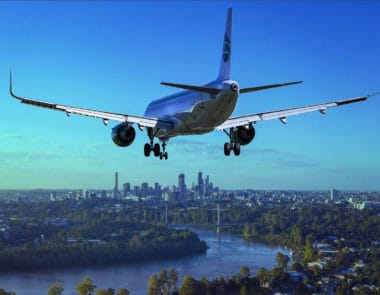How to Make a Travel Budget – Budgeting for Your Next Family Vacation (2025)
Before you take your next trip, it’s a smart idea to outline a travel budget. If you don’t plan out your expenses, it can be easy to overspend. You want to make sure that you have enough money to enjoy your trip without stressing out about your finances. If you’re new to budgeting for travel, it’s easier than you might think. Check out our guide below to learn how to create a travel budget and what to consider as you plan your trip costs.
Table of Contents
The First Steps
Here are the first things to consider when creating a travel budget for your next vacation.
1. First Decide What You Can Afford to Spend
The first step is to decide if it financially makes sense to travel. You want to ensure you can comfortably afford to travel and won’t be put in a difficult financial situation by taking a trip.
If you’re unsure, these are some questions that you can ask yourself:
- Do you have any expected large purchases coming up within the next few weeks or months?
- Do you have money already set aside in a vacation fund?
- Will you be able to enjoy your trip without worrying about finances?
- Will you be able to pay off any trip debt quickly?
- Would it be best to travel now or wait a few more months and then travel?
2. Price Out Your Destination
Before you outline your trip details, you’ll need to choose a destination and price out its costs. You don’t need to know to exact costs at this stage, but it will help you get a feel for how expensive your trip could be.
If you have a few destinations in mind, now is an excellent time to consider travel costs and the cost of expenses once you get there. Doing this can help you narrow down your options.
Remember that some destinations are more affordable than others – so if you’re limited on funds, consider inexpensive destinations. If you have a larger budget and want to visit a bucket-list destination, a more costly place may work for you.
3. Figure Out If It’s Cheaper to Fly or Drive
One of the most important decisions that you’ll need to make is how you’ll get to your destination. Some destinations, such as international ones, will require you to fly. But if you’re hoping to visit somewhere closer to home, you may be able to drive or consider alternate transportation like taking a bus or train.
Price out how much it will cost to get there and back by driving vs. flying. It would also be helpful to consider local transit costs. Is there public transit available? Will you need a rental car? Can you walk around a lot?
When making transit decisions, don’t forget to consider additional expenses that may come up, such as the following:
Extra expenses when flying:
- Airport parking fees
- Travel to and from the airport
- Travel day expenses (food at the airport, etc.)
Extra expenses when driving:
- Gas
- Tolls
- Snacks and food
- Car rental costs (if necessary)
- Lodging (if driving a long distance)
- Your time (you may spend more time driving and less time at your destination)
If you know that you’ll need to rent a car to drive before your trip begins or once you arrive at your destination, you’ll want to shop around to secure an affordable rental car rate. You may be able to get a better rate by booking a car well in advance. If you’re not sure where to begin, take a look at our best websites for booking cheap rental cars learn how to find an affordable car rental.
4. Set your budget
Now that you know how much you can afford to spend, have decided where you want to go, and how you’ll get to and around your destination, this is the time to set a total budget amount. Setting your budget before you make reservations and specific plans is best because it can help you ensure you stay on track with your spending.
Plan for These Travel Expenses
As you create and follow your travel budget, these are the expenses you’ll want to consider.
Flight Costs
If you are flying to and from your destination, you’ll need to purchase airfare. Research early, and don’t wait until the last minute to book your tickets. If you wait too long, you may pay higher prices.
Cash vs. award flights: You’ll need to decide if you plan to pay for your tickets with cash or redeem points for free flights. Before booking flights, check how many credit card points you have. You should also check your airline loyalty programs to see if you have enough points to redeem for a flight. Don’t forget to factor in taxes and fees when considering an award flight.
If you’re buying tickets and paying with a credit card, make sure that you use a travel rewards credit card so you can earn points on your spending. Be smart when using a credit card. Only charge what you can afford to pay off, so you don’t accumulate debt and pay expensive interest charges.
These money-saving resources may be helpful as you begin to research flight options:
- How to Find Cheap Flights
- How to Use Google Flights
- How to Use Skyscanner
- The Best Websites for Booking Cheap Flights
- The Best Days to Book Flights
- The Best Days to Fly
Additionally, luggage costs can be expensive. Avoid overpacking so you do not have to pay for extra carry-on or checked bags. See our Ultimate Travel Packing List guide for information.
Accommodation
Accommodation costs can also add up and make up a significant portion of your budget. Plan out how many nights you’ll need accommodation. You should also consider whether you’ll spend your entire trip in one place or if you want to break up your trip and spend time in different areas. Doing this will help you better sort out accommodation expenses.
While not all accommodation options work well for every traveler, you have options.
Here are a few options:
- Hotels
- Home rental
- Shared accommodation (hostel, private room in a home, private hostel room)
Hotels:
Hotels work well for travelers looking for more privacy during their stay. You can find hotels in a range of price levels. As you begin to look at hotel options, consider pricing out different areas, and don’t forget hidden costs like parking fees and resort fees. If you’re looking to spend less, these are the best websites for booking cheap hotels.
Home Rental:
Renting a vacation home while traveling is a great way to make your travel experience more enjoyable. You may get more space and get added amenities that typically aren’t offered when you book a hotel room. Plus, there are all kinds of properties to rent – like condos, single-family homes, cabins, villas, and tiny homes. This variety gives you a lot of options.
Airbnb and Vrbo are two popular vacation home rental companies. They have many similarities but also differ in some ways. Here’s what you need to know.
Vrbo is short for “Vacation Homes by Owner.” Vrbo features entire properties for rent. You’ll find a wide range of property types, but you won’t be able to rent a private room or a portion of a property. Instead, you’ll rent the entire place.
Airbnb, on the other hand, has a mix of accommodation options. You can rent a private property or home, or you can rent shared accommodation, such as a private room in someone’s home. In most destinations, Airbnb properties are more plentiful.
If you know that you want to rent a vacation home, it’s a good idea to compare options on both platforms. When comparing options and prices, don’t forget to factor in fees. Both platforms charge guests fees.
Shared Accommodation:
If you don’t have a lot of money to spend, you might want to think about shared accommodation. By renting a shared space, you can trim your travel costs significantly. One option is to reserve a bed in a hostel and sleep in a room with other travelers.
Other options that may cost more money but may offer slightly more privacy include renting a private room in a hostel or renting a private room in a home. With these options, you’ll have access to shared spaces like the kitchen and bathroom but will have a private area to sleep.
If you don’t mind being around others, this can be a great way to save money when traveling.
Figure out the total accommodation costs for your desired property and ensure the price works for your trip budget.
Further Reading: Tips for Booking and Staying in a Hostel
Other Transit Costs
As mentioned earlier, transit costs should also be considered when making trip plans. If you already priced out a rental car and considered extra expenses like gas and tolls, you’re set. But if you’re not planning to drive or get a rental car, you’ll need to consider how you’ll get around once you arrive at your destination.
Rideshare services are one transit option to consider. Uber and Lyft are two of the most popular options available in many destinations. These services are convenient and easy to use, but they can get expensive if you use them regularly when traveling.
If your destination has excellent public transportation, take advantage of it. Get a feel for ticket prices before you leave. Some cities offer multi-day transit passes for bus or metro access, and if you’re traveling for several days, this could save you money.
If you can walk around or combine walking with other transit options, this could save you some money. Plus, you’ll get some exercise in.
Food Costs
Another travel cost that you’ll want to consider and budget adequately is food costs. If you plan to dine out at restaurants for most of your meals, you’ll need to budget accordingly. If you’re staying somewhere with a kitchen, you can budget less for food costs.
If you plan to dine out, whether at restaurants or grab-and-go eateries, consider doing some research in advance. Make a list of the places you want to visit and check menu prices. This way, you can budget more appropriately.
These tips may help you save money on food costs when traveling:
- Buy some food essentials at a local grocery store after arriving
- Book accommodations with a kitchen
- Eat some meals in (such as a simple breakfast)
- Pack snacks with you to enjoy while on the go
- Dining out for lunch may be cheaper than going out for dinner
- Look for happy hours and other drinking and dining deals
Activities
Activities and attractions are essential elements of any trip. While you may find some free and low-cost activities, it can be hard to do everything you want to do without spending some money on activities. Before your trip, make a list of must-do activities and then research the costs.
If you’re looking for ways to save money, here are some ideas:
- Visit museums on free or low-cost entry dates
- Check weekday rates to see if you can save money on activities
- Book in advance to secure a lower rate
- Consider buying attraction bundle passes to save on admission costs
- When traveling with others, check to see if there is a discounted group rate
- Look for discounted deals for local activities on sites like Groupon
Souvenirs
Souvenirs can be an additional cost that can make a trip more expensive. If you plan to bring home souvenirs, consider allowing extra money in your budget.
It may not make sense to buy souvenir items at your destination for some trips. For example, purchasing official Disney items at the shops in Disney World may be more expensive than ordering some memorabilia online.
If you can avoid souvenirs entirely or settle on one souvenir per trip, this can help you lower your trip costs.
Travel Insurance
While travel insurance is usually not required for most trips, it can be beneficial. There’s always the potential that a trip won’t go as planned, and in many cases, travel insurance can make a difficult situation a little less stressful.
If you plan to purchase travel insurance, it’s often cheaper to buy a policy well in advance. Do some research early on to get an idea of rates and compare policies offered through different insurers. If you need more guidance, take a look at our best travel insurance guide.
Don’t Forget These Other Costs
There are some other costs that you may forget about as you begin to budget for and plan your trip. Some trips require additional expenses. Here are some extra costs to consider:
- Passport application fees and renewal fees: If you’re traveling outside of the country and don’t yet have a passport, you’ll need to apply for one. There are fees for new passports and passport renewals. If you currently have a passport, make sure you have at least six months of validity before it expires. Many countries require this, and you don’t want to be denied entry when you board the plane. If you know that you need to renew your passport, allow plenty of time for processing in case of delays.
- Visa costs: You should always check visa requirements before traveling internationally. Some countries allow Americans to visit as tourists for 30, 60, or 90 days without a special visa. But that’s not always the case. If you need a special visa, allow extra time for the visa application process and budget for the visa fees in advance.
- Trusted Traveler program fees: If you’re planning to use any Trusted Traveler programs like TSA Precheck, CLEAR®, or Global Entry, check application fees and allow plenty of time for the application process. If you currently have one of these memberships, ensure that your expiration or renewal date isn’t coming up before your trip.
- Vaccination costs: Some countries require tourists to have specific vaccinations before visiting. Additionally, some vaccines may be recommended depending on where you’re traveling. Plan for these costs in advance and learn about the timeline for vaccination, so you’re prepared. U.S. health insurance may not cover vaccines needed for travel in many cases—so plan to pay out-of-pocket.
- Unforeseen costs: It’s a good idea to also include some extra money in your budget for unexpected expenses. You never know if an expense will cost more than you planned. By having some extra cash on hand and room in your budget for added costs, you’ll be less stressed and will be able to enjoy your trip more.
A Note on Prepaid Costs vs. Costs That You’ll Pay After Arrival
As you follow your travel budget and make your trip plans, remember that you will pay for some costs in advance while other expenses will need to be paid while you’re traveling.
For example, if you book airfare tickets and book a hotel, you’ll likely prepay for those costs before you arrive. Airfare costs are usually charged to your credit card when you make your reservations. Some accommodation websites charge your card when booking, while others charge once you arrive. Booking with a travel credit card is a smart idea because you can earn points or miles on your purchases.
Other costs like transit, some activities, and food will likely need to be paid for as you travel. Consider this when planning which credit cards you’ll bring and how much cash you’ll take. You want to make sure that you budgeted enough money for these “future costs.”
If Possible, Start Planning for Travel Costs Before You Travel
It’s a great idea to plan for travel costs before it comes time to take a trip. One way to do this is by saving a set amount of money each month and putting it into a travel fund. When you feel like taking a trip, you’ll already have some money set aside.
Another option is to use credit cards to your advantage. You can earn points as you spend with a rewards credit card. With the right travel credit card, you can redeem your points for flights and hotel stays. Award travel can make your entire trip more affordable.
Set goals and aim to open cards with big welcome bonuses so you can redeem your earned points for travel more quickly. If you’re ready to explore travel hacking, check out our credit card reviews to learn more about the best credit cards.
FAQ
No, a travel budget isn’t a must, but it can be helpful. Setting and following a travel budget is a good option if you don’t want to overspend on your next trip.
How much money you need to budget depends on your financial situation, destination of choice, and transit and accommodation preferences. Be realistic about expenses as you set and follow a trip budget. If a trip feels too pricey, consider taking a shorter vacation or choosing a less expensive destination.
When booking your prepaid travel costs, make sure that you stay within your budget. If you’re worried about overspending once you arrive at your destination, figure out your daily spending allowance. Use that number as a reminder when you make purchases to avoid overspending.
There are many ways to spend less money when traveling. Here are some ideas: Book reservations as early as possible, find deals and discounts on hotels, airfare, and activity costs, and don’t dine out for every meal.
The Vacationer’s Final Thoughts
It can be very beneficial to create and follow a travel budget. It’s too easy to overspend when traveling, especially if you’re visiting a new destination and haven’t planned well. By creating a travel budget, you can keep your finances in check without sacrificing fun.
Get The Vacationer Newsletter
Get highlights of the most important news delivered to your email inbox






